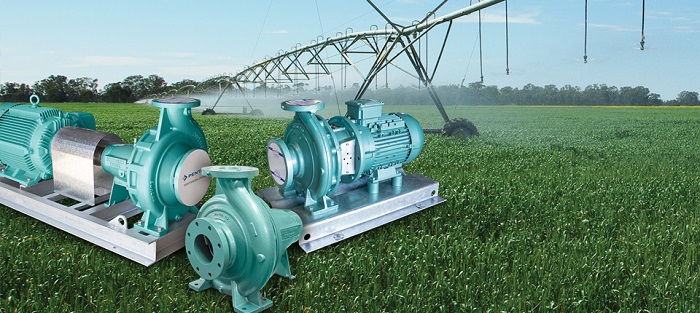
Your irrigation pump can break or make your irrigation needs; therefore, selecting the right one is very important. The right irrigation pump ensures that your plants get enough water, and it provides the best efficiency to get the most in the layout of your field. Generally, an irrigation pump with higher horsepower means greater pressure and volume. Here are the main considerations when choosing an irrigation pump.
Understand the basics
It is advisable to learn how irrigation pumps work before going shopping at PumpBiz. There is a wide range of irrigation methods, but they all have the same goal- to distribute water evenly in the field. When buying an irrigation pump, you should aim to keep your energy requirements low while ensuring that your plant gets enough water- not too much or too low.
To ensure uniform irrigation, you can first divide the cultivation area into zones depending on the type of plants, irrigation requirements, or soil type. Then you can water every zone with the help of sprinklers, valves, or pipes connected to the irrigation pump. The reason for dividing your cultivation area into zones is that the pump may not have the capacity to irrigate the whole area at one time.
Consider your irrigation equipment.
Different irrigation equipment needs different amounts of water and pressure, so choosing your irrigation equipment beforehand is advisable. Most importantly, consider the controller, which plays the vital role of turning the water on and off during specific times, e.g., heavy rains, direct sunlight, and heavy winds. It conserves the water, so you may find that it turns it off to allow it to seep into the soil to reduce runoff and infiltration.
Consider your water source.
Water continues to get scarce by the day, and you have to ensure efficient irrigation in your field. Identify the right water source for your crops before choosing a pump so that you can determine the right one for that application. Common irrigation sources include wells, rivers, lakes, and non-conventional water sources such as reclaimed water, drainage water, wastewater, and desalinated water.
Determine the right pump
The location of your water source comes into play when selecting an irrigation pump. For instance, submersible pumps and turbine pumps are suitable for drawing water from deep underground water sources such as wells and boreholes. There is a wide range of irrigation pumps you can use
with surface water.
When selecting an irrigation pump, the most important thing is to ensure a uniform flow of water to meet every plant’s water needs. Consider pumps with favorable features like decreased energy consumption and easy cut in/cut off ability.
The pump size matters
Selecting the right pump size is essential to meet your irrigation needs, and it should not be too small or oversized. Factors determining the correct pump size include power consumption, motor protection, system pressure, and variable speed controls. You should also calculate the pump’s efficiency before the final selection, and most pump manufacturers can provide you with that information.
the takeaway
Do not forget the pump’s integration capability with the rest of the irrigation system. It should match your other irrigation equipment for maximum efficiency.
The Role of Office Cleanliness
December 29, 2023Is a Demat Account Necessary for Investing in Stocks?
August 25, 2023
Comments are closed.
-
The Trustable and the Usable Effects of Clenbuterol
November 5, 2016 -
5 Crucial Steps Before Home Selling
May 18, 2018
Recent Posts
- Exploring the Variety of Sports and Games on Reddy Anna Book February 14, 2024
- The Role of Office Cleanliness December 29, 2023
- Answers To Commonly Asked Questions About Property Division November 29, 2023
- The Role of Technology in Modern Supply Chain Procurement November 29, 2023
- Engine Degreaser & Oil Treatment: A Game Changer in Automotive Care November 25, 2023
- İddaa Siteleri Kullanıcı Yorumları Gerçek Oyuncular Ne Diyor November 22, 2023
- Contested divorce in Montgomery: The tough battle ahead November 20, 2023
- Sustainability & Keter Group: How Alejandro Pena Guides the Sustainable Decor Company Forward October 30, 2023

Latest Posts
-
Exploring the Variety of Sports and Games on Reddy Anna Book
February 14, 2024 -
The Role of Office Cleanliness
December 29, 2023 -
Answers To Commonly Asked Questions About Property Division
November 29, 2023 -
The Role of Technology in Modern Supply Chain Procurement
November 29, 2023 -
Engine Degreaser & Oil Treatment: A Game Changer in Automotive Care
November 25, 2023












